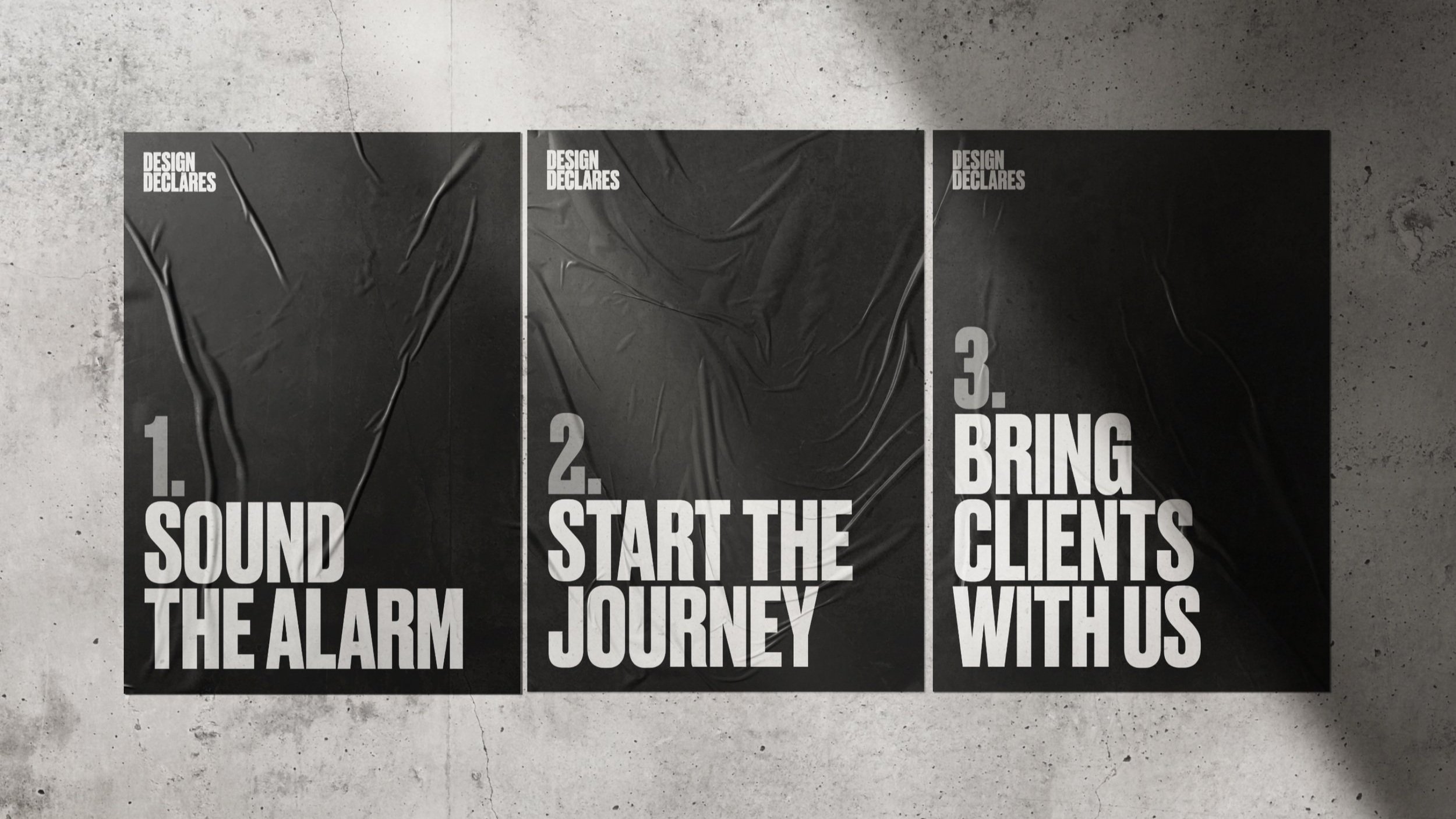Why Design Declares?

In 2021 I started a personal journey in building a deeper understanding of sustainable design. The result of which was the Sustainable Design Handbook. This opened up conversations with others in the industry about what more we could do.
Speaking to the team behind Architects Declare it became clear that this could be the answer the design industry needed. Joining forces with James Wood and Liam O’Brien from Studio Wood, we were then introduced to Alexie Sommer and Sophie Thomas from Urge Collective who had also had similar ideas.
And so, for the past 6 months I’ve been working behind the scenes on Design Declares.
What is Design Declares?
Design Declares is a call to action to designers to declare a climate and ecological emergency and work towards understanding, measuring and acting on the climate impact they have through their work.
Design Declares is three things:
Website: Firstly there is the Design Declares website communicating the importance of the campaign and an opportunity for designers, in-house teams, agencies and institutions to join the list of signatories in declaring an emergency.
Acts: Secondly there are 8 Acts of Emergency. These are starting points for how designers can actually create change through their work and business practices. They start at the simplest ‘Sound the Alarm’ - acknowledge and actively raise awareness of the climate crisis, and work up to ‘Amplify Voices for Change’ - work alongside policy makers and activists to strengthen movements for systemic change.

Toolkit: Finally, and probably most importantly, is the Toolkit. Put together with the insights of over 150 designers, this breaks each Act down into small achievable steps and provides supporting resources and insights.
Who do we mean by designers?
Design Declares is aimed at designers from disciplines including industrial, digital, service and communication design and I’ve been working with a group of incredibly passionate individuals from Driftime, Snook, Thomas.Matthews, Studio Wood, Urge Collective and of course the Morrama team to make this happen.
However, whilst signatories are required to be practicing agencies, freelancers, in-house teams or institutions, the Toolkit is accessible to all. Whether you are a student, client, startup or just curious, the resource is free and easy to use.
What does this mean for Morrama?
Morrama is not a ‘sustainable design agency’. We have never labeled ourselves that and never will. Instead we believe all design projects should consider the potential impact on both people and planet, not just those with a label.
Earlier this year we made a commitment as a team only to take on projects that answer yes to one of the following:
- Will it improve the wellbeing of a person or society?
- Is it more sustainable than what has come before?
- Does it bring a product or experience to typically under-represented markets?
This might on face value appear that we would therefore take on a project aimed at personal wellbeing that has no considerations for sustainability, but this is not the case. Our commitment to Design Declares means that we will continuously upskill ourselves in the latest guidance and design principles of sustainable design and bring this knowledge into every project we work on.
What does Design Declares mean for our clients?
Sustainability relates not only to the climate but also to business. With resources running out and climate change causing devastating damage and disruption, it is vital we look ahead and design ways to future proof our work, our communities and our planet.
In practical terms:
1. Considering the impact of our outputs is non-negotiable.
Whether through research, outside expertise or detailed life-cycle-analysis we will seek to get a clearer picture of the climate and ecological impact of the work we produce and use this understanding to guide decision making.
2. Sharing knowledge goes both ways
Learnings on projects shall be shared between clients, partners and stakeholders so we can all move forwards together.
3. We request a right to refusal
If it becomes clear that, despite our best efforts, a project is being deliberately taken in a direction that will cause more climate and ecological harm, we have the right to withdraw from the contract.
Most importantly however, it means being open and honest. From the very beginning of the project when we ask ourselves ‘what is the reason for this product to exist?’, all the way through to the message we share with customers on what to do at the end of that product's life.
Find out more at www.designdeclares.com




